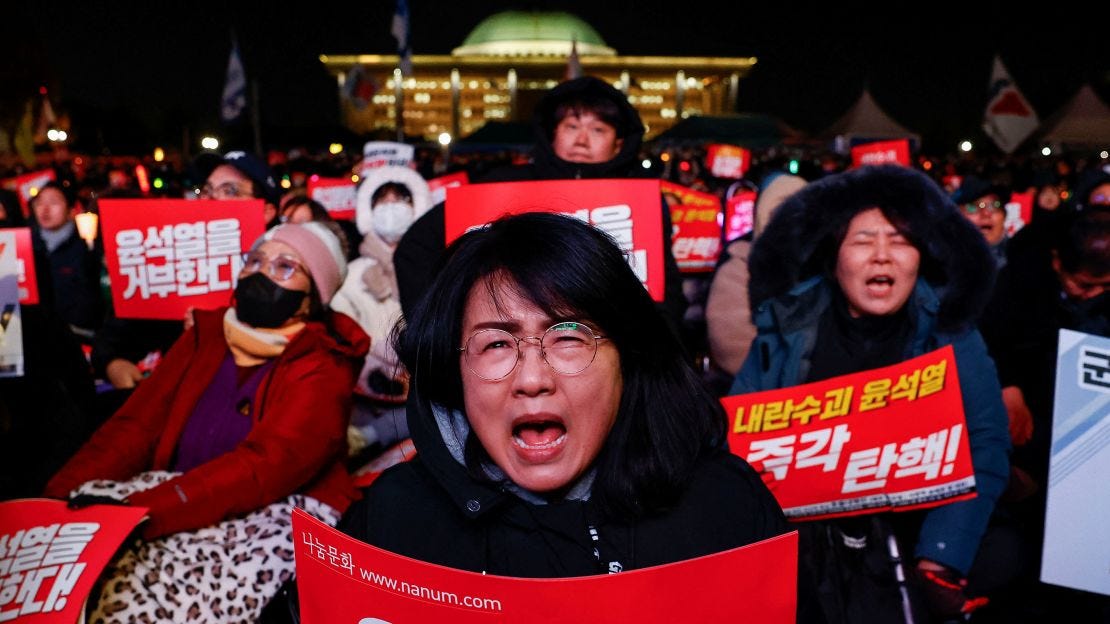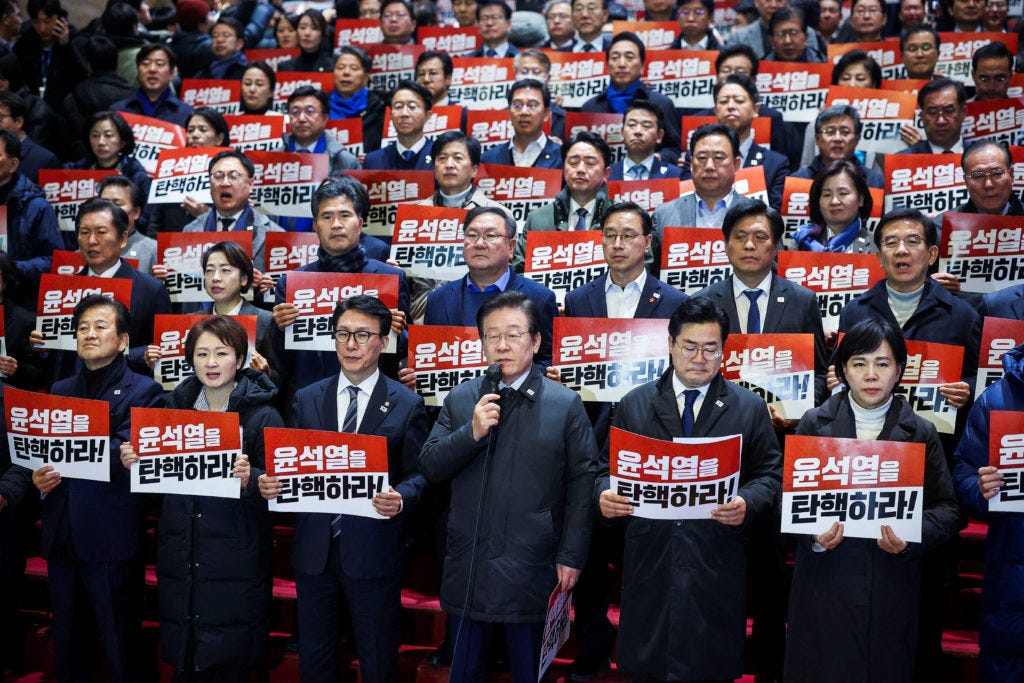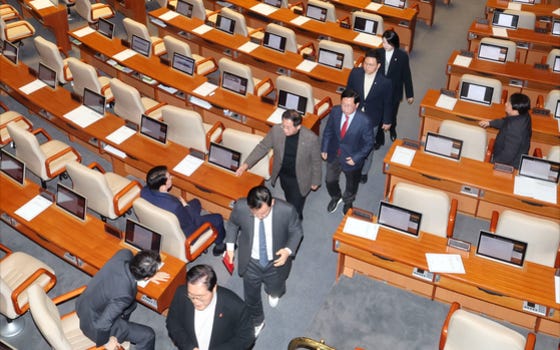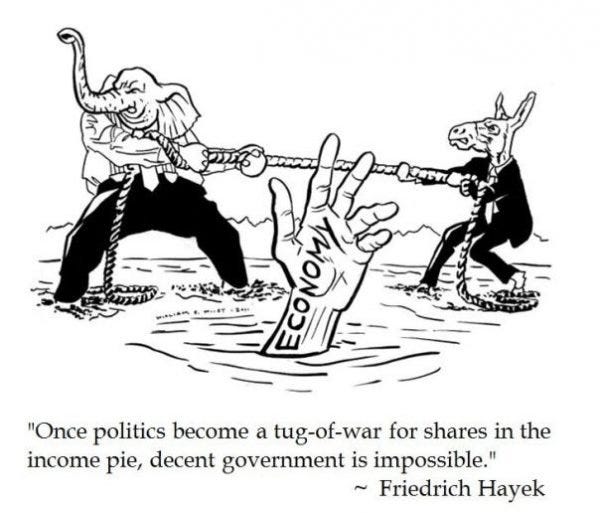Political Psychology and Sociology: Lessons from South Korea’s Impeachment Drama
President Yoon Suk Yeol's declaration of martial law and the opposition's push for impeachment reveal how political systems can become pressure cookers of authority, public perception, and institution

A political crisis in South Korea may redefine its future. The outrage over President Yoon Suk Yeol’s shocking decision to impose martial law is fueling impeachment calls. This power struggle jeopardizes democracy. What transpires next will have a significant impact on South Korea, and will additionally set a benchmark for international relations, demonstrating how effectively countries can handle confrontations that undermine leadership and public confidence.
Leadership Under Pressure: Using Psychology During a Crisis
When President Yoon imposed martial law, it was a drastic decision that revealed his sense of losing control. Psychologists refer to this as a “fight or flight” response. Leaders under stress often decide based on survival instincts rather than careful consideration. Martial law, historically linked to authoritarian regimes, symbolized desperation rather than strength.
Societies often react to abusive authority with fear, anger, or defiance. This illustrates the sociological concept of legitimacy theory: power is only accepted if it conforms to societal norms. Yoon’s actions, violating democratic principles, sparked widespread protests, highlighting the fragility of public trust when authority is perceived as unjust.

Historical Repeats of Authoritarianism in South Korea
South Korea’s reaction stems from its past. Following decades under military rule, the nation transitioned to a democratic government in the late 1980s. Many South Koreans saw Yoon’s decision as reminiscent of authoritarian times. From a sociological perspective, this represents cultural memory—the influence of shared historical experiences on contemporary beliefs and actions. The public’s outcry over martial law was not solely directed at Yoon, but also displayed serious anxieties and disagreements.
Polarization and Group Behavior in Politics
Deep political disagreements were exposed during the impeachment vote. Protesting against the proceedings, eight members from Yoon’s People Power Party (PPP) walked out. Their actions showed a unique psychological phenomenon called groupthink. Groupthink is when a person or group of people’s desire for unity overrides critical thinking and resolution skills.

Faithfulness to one’s political party often leads to the creation of unyielding perspectives and expectations. This practice can slow down productivity and compromise, which is one of many core fundamentals when governing a nation. The PPP’s action is a prime example of loyalty, even if the leader’s judgment isn’t just towards the majority. The opposition’s, those who are against martial law and for the democratic governance, were open about prioritizing their group’s goals while aiming to satisfy the public without causing additional dialogue or social disruption.
The Role of Polarization in Democracies
Polarization isn’t only a South Korean issue. Other countries are dealing with their version of imbalanced stability in overall democracy. Even before the United States election, most American citizens pushed the ideologies of the presidential race too far. Over time, from social media platforms to expressing one’s personal narrative, American decisions felt like it was (and still is) a winner-takes-all battle. It isn’t about supporting an ideology or challenging a reasonable cause anymore. It’s slowly becoming a psychological and sociological survival tactic.
How?
Each side sees the other not as an opponent, or an overly opinionated human being, but as an enemy on domestic grounds. Also, advanced technology has put many middle to high-class families at a better advantage than lower-class families. So, when combining politics with technology, plus sociological disruption, one will experience a corrupted cesspool of heighten tension between their very own neighbors (with or without valid reasoning).
For South Korea, Yoon’s allies’ walkout during the impeachment vote resembled anger, distraction, and resistance. It could be a political setup to distract the majority while their new wave minorities gain the advantage. Then again, it could be a warning for lawmakers that change is coming, and it’s going to be even harder to find solutions to national problems.
Visit similar post for more information: ‘Come Back!’: A Surprise Boycott Saves South Korea’s President from Impeachment by Jiyoung Shon and Timothy W. Martain
Sociology Behind South Korea’s Public Opinion
Many sociologists view South Korean’s public opinion as a vital part of how democracy should work. The idea doesn’t focus on the reaction to favorable and unfavorable political decisions. Democracy encourages form and collective resolution.
For example, current polls show that over 75% of South Koreans support President Yoon’s impeachment hearings. This is a clear example of herd behavior. Herd behavior is when stray individuals align with majority views during uncertain times. Of course, leaders throughout the world depend on public approval for legitimacy and support. Without it, they’re simply yesterday’s news and potentially an enemy against the greater good.
Final Thoughts?
South Korea’s crisis warns all nations to improve political stability. Leaders commonly encounter situations with uncompromising demands. Yet, with political divisions tearing the nation apart, who will take the initiative to solve this?
South Korea’s issues with martial law and impeachment affect more than just South Korea. Anyone can experience this at any point. With everyone distrusting the government, is finding common ground even possible? The question is not whether, but when, we will experience the consequences.
Author’s (Quick) Note
Got a story to tell or insights to share? Talk PTSB is your chance to get noticed! We're a 100% contributor-based platform, and we’re on the lookout for passionate writers to grow their careers and portfolios in tech, psychology, sociology, and business. Apply today—it's free—and be part of something big when we launch on February 20, 2025. Don’t miss out—this is your moment!




